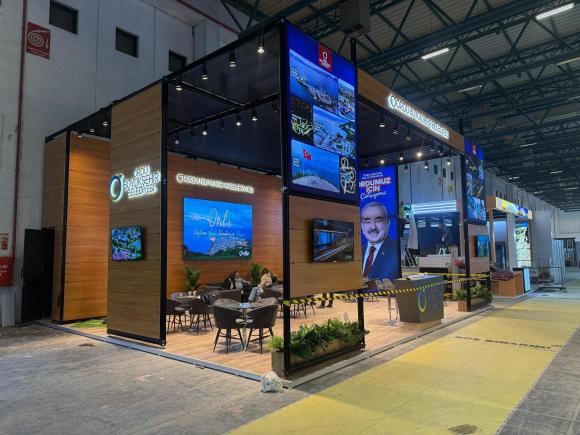The Great Work Trap: Why Being Busy Doesn’t Mean You’re Getting Ahead

Last Tuesday, I watched my colleague Sarah frantically tackle her never-ending email mountain at 8 PM, looking both exhausted and oddly proud of her “productivity.”
She’d answered 127 emails that day. Impressive, right?
Here’s the plot twist: Not a single one of those emails moved her project forward, closed a deal, or solved a meaningful problem. She was productive as hell but as efficient as a screen door on a submarine.
That moment crystallized something I’d been wrestling with for months: we’re confusing motion with progress, activity with achievement, and busyness with actual business results.
The Productivity Trap That’s Eating Your Day
Picture this scenario—sound familiar?
You arrive at work early, dive straight into your inbox, knock out some quick administrative tasks, hop between three different meetings, respond to Slack notifications, and finally collapse into your car 10 hours later feeling simultaneously drained and accomplished.
You were productive. You got stuff done. Lots of stuff.
But were you efficient? Did those 10 hours actually move you closer to your goals, or did they just keep you busy?
Here’s the uncomfortable truth: Most of us have been trained to measure success by how much we do rather than how well we do it.
I learned this lesson the hard way during my first management role. I was working 60-hour weeks, responding to every email within minutes, and attending every meeting I was invited to. My boss loved my “work ethic.”
But my team’s performance was mediocre at best.
I was so busy being busy that I wasn’t actually leading. I was managing tasks instead of developing people, reacting to problems instead of preventing them.
The Numbers That Tell the Real Story
The statistics around workplace productivity are sobering. According to Clockify, the average office worker is only truly productive for 2 hours and 23 minutes per day.
Let that sink in. Out of an 8-hour workday, we’re actually accomplishing meaningful work for less than 3 hours.
What are we doing with the other 5+ hours? Getting trapped in productivity theater—activities that feel important but don’t create real value.
Here’s another eye-opener:85% of employees spend up to two hours daily just searching for work-related information. That’s not productivity—that’s organizational chaos disguised as being “busy.”
The Controlio app I use to track our team’s work patterns revealed something fascinating:Our highest performers weren’t working more hours—they were working more strategically during fewer hours.
Cracking the Code: Productivity vs Efficiency
Let me break this down with a real example from my sales team.
Tom sends 50 prospecting emails per day. His response rate? 2%.
Lisa sends 15 carefully researched, personalized emails per day. Her response rate? 18%.
Tom is more productive (higher volume). Lisa is more efficient (better results per effort invested).
Guess who’s hitting their sales targets?
Productivity measures how much you can do in a given time. Efficiency measures how well you use resources to create value.
The magic happens when you combine both: doing the right things (efficiency) at the right pace (productivity).
The Four Pillars of Smart Work
After studying high performers across different industries, I’ve identified four key principles that separate truly effective people from the perpetually busy:
- Ruthless Prioritization
Efficient workers don’t just manage their time—they guard it like a bouncer at an exclusive club. They understand that saying yes to everything means saying yes to nothing that matters.
- Quality Over Quantity
Instead of answering 50 mediocre emails, they send 10 emails that actually solve problems or move projects forward.
- Strategic Automation
They use tools and systems to eliminate repetitive tasks, not to do more busy work, but to focus on high-value activities that require human insight and creativity.
- Results-Focused Measurement
They track outcomes, not activities. Instead of “I sent 30 emails today,” it’s “I closed 2 deals and advanced 5 prospects through the pipeline.”
The Technology That Actually Helps
Here’s where things get interesting. Employee monitoring software like the Controlio app isn’t just about oversight—it’s about insight.
The Controlio app revealed patterns I never would have noticed:
Our most efficient developers worked in 90-minute focused blocks with strategic breaks, while our least efficient ones constantly switched between tasks.
Our best customer service reps spent more time preparing for calls and less time on them, resulting in higher resolution rates and customer satisfaction.
These insights changed everything. We stopped rewarding busywork and started optimizing for actual results.
The Personal Revolution
Six months ago, I was that person sending emails at 11 PM, wearing exhaustion like a badge of honor.
Today, I work fewer hours but accomplish more meaningful work.
The shift wasn’t about time management techniques or productivity hacks. It was about fundamentally changing how I define success.
Instead of asking, “How much did I get done?” I started asking, “What meaningful progress did I make?”
Instead of filling every minute with activity, I started protecting time for deep, focused work on high-impact projects.
The results speak for themselves: Our team’s performance improved by 40% while everyone reported feeling less stressed and more engaged.
The Bottom Line
Productivity without efficiency is just expensive busywork. Efficiency without productivity can’t scale to meet real-world demands.
The sweet spot is finding the intersection: doing the right things well, at the right pace, with the right tools and systems.
Your career success won’t be determined by how many emails you answered or how many hours you logged. It’ll be determined by the value you created and the problems you solved.
So here’s my challenge: For the next week, track not just what you do, but what impact those activities have on your actual goals.
You might be surprised by how much of your “productivity” is actually just motion without progress.
Ready to escape the busy trap and start creating real value?
The first step is admitting that being busy isn’t the same as being effective. The second step is doing something about it.
Time to stop confusing effort with results and start working smarter, not just harder.




